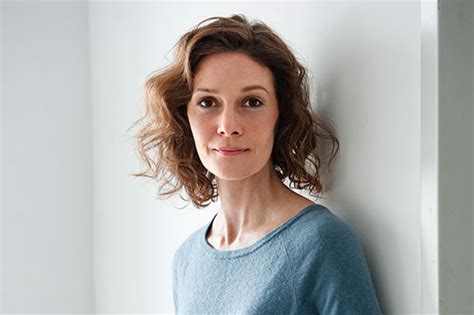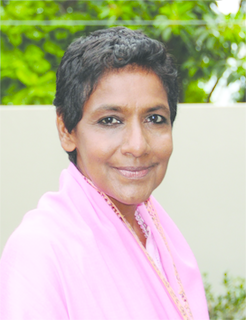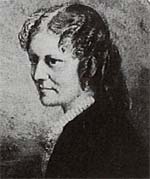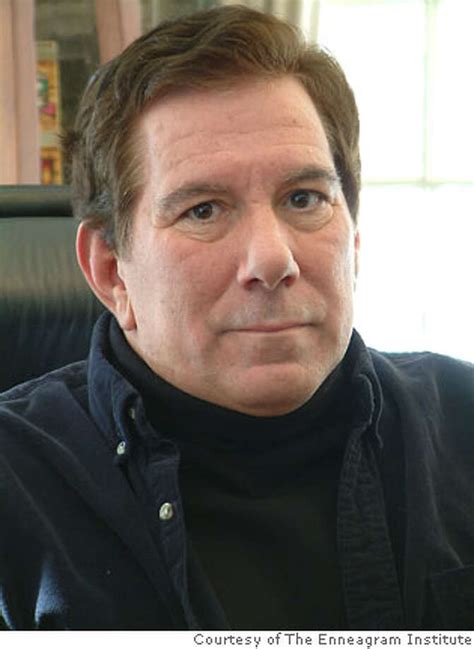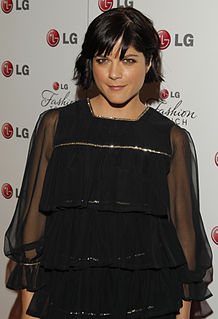A Quote by Leah Hager Cohen
Is there a wrong way to say "I don't know"? Yes. When we declare ignorance, it should be a) honest and b) in the spirit of opening ourselves up to hearing, to learning, to receiving. When we say "I don't know" under these conditions, the words can forge connection, healing, growth. But when we resist or disavow knowledge, when we profess ignorance as a way of donning armor and evading accountability, then we make a mockery of those words, and we rupture connections not only with others but within ourselves, within our souls.
Quote Topics
Related Quotes
A writer is a person who cares what words mean, what they say, how they say it. Writers know words are their way towards truth and freedom, and so they use them with care, with thought, with fear, with delight. By using words well they strengthen their souls. Story-tellers and poets spend their lives learning that skill and art of using words well. And their words make the souls of their readers stronger, brighter, deeper.
The Yogic sages say that all the pain of a human life is caused by words, as is all the joy. We create words to define our experience and those words bring attendant emotions that jerk us around like dogs on a leash. We get seduced by our own mantras (I'm a failure I'm lonely I'm a failure I'm lonely) and we become monuments to them. To stop talking for a while, then, is to attempt to strip away the power of words, to stop choking ourselves with words, to liberate ourselves from our suffocating mantras.
Instead of making others right or wrong, or bottling up right and wrong in ourselves, there's a middle way, a very powerful middle way...... Could we have no agenda when we walk into a room with another person, not know what to say, not make that person wrong or right? Could we see, hear, feel other people as they really are? It is powerful to practice this way..... true communication can happen only in that open space.
We have heard of a Society for the Diffusion of Useful Knowledge. It is said that knowledge is power, and the like. Methinks there is equal need of a Society for the Diffusion of Useful Ignorance, what we will call Beautiful Knowledge, a knowledge useful in a higher sense: for what is most of our boasted so-called knowledge but a conceit that we know something, which robs us of the advantage of our actual ignorance? What we call knowledge is often our positive ignorance; ignorance our negative knowledge.
We're in essence allowing our spirit to come to terms with all the conflicts that we build within ourselves. Disease is after all a conflict within the tissue itself. Memory fading within the tissue, conflict of our actions or thoughts, our lives are not seamlessly running together in some way for ourselves, and had not been for a long time before we get to the critical point of a disease.
The testimony of the greatest humans who have ever lived is that the way to make the most of ourselves is by transcending ourselves. We must learn to move beyond self-centeredness to make room within ourselves for others. When you transcend yourself, the fact will be confirmed by the quality of your life. We will attain - even if only momentarily - a transparency and a radiance of being which results from living both within and beyond yourself. This is the promise and the excitement of self-understanding.
One of the ways of stopping science would be only to do experiments in the region where you know the law. But experimenters search most diligently, and with the greatest effort, in exactly those places where it seems most likely that we can prove our theories wrong. In other words, we are trying to prove ourselves wrong as quickly as possible, because only in that way can we find progress.
We may have created this projection of what God should be, as this judge or test, but the fact is, the only way we know about God is by knowing ourselves in some way. So God must be in ourselves-you can't deny that. If you say that God is somewhere else, which is what a lot of religions say, I just can't deal with it. I guess it's the difference between Buddhism, Christianity, and Judaism, or something.
Suppose that we are wise enough to learn and know - and yet not wise enough to control our learning and knowledge, so that we use it to destroy ourselves? Even if that is so, knowledge remains better than ignorance. It is better to know - even if the knowledge endures only for the moment that comes before destruction - than to gain eternal life at the price of a dull and swinish lack of comprehension of a universe that swirls unseen before us in all its wonder. That was the choice of Achilles, and it is mine, too.
What is life? Thoughts and feelings arise, with or without our will, and we employ words to express them. We are born, and our birth is unremembered and our infancy remembered but in fragments. We live on, and in living we lose the apprehension of life. How vain is it to think that words can penetrate the mystery of our being. Rightly used they may make evident our ignorance of ourselves, and this is much.
Love is a way of seeing and a way of being that honors God in everyone we meet. And it changes us in the most fundamental way. All we need to do is welcome the challenge of our relationships, training our eyes to look beyond human behavior to the Presence within. When we seek to live love, we discover through our interactions with others the divinity within ourselves.
I believe that fallen creatures perish, perish for ever, for only good can live, and good has not been theirs; but how durst men forge our Saviour's words "eternal death " into so horrible a meaning? And even if he did use other words, and seem to countenance such a meaning for them (and what witness have we that He did, except that of men whose ignorance or prejudice might well have interpreted these words wrongly as they did so many others?
The choice to follow love through to its completion is the choice to seek completion within ourselves. The point at which we shut down on others is the point at which we shut down on life. We heal as we heal others, and we heal others by extending our perceptions past their weaknesses. Until we have seen someone’s darkness, we don’t really know who that person is. Until we have forgiven someone’s darkness, we don’t really know what love is. Forgiving others is the only way to forgive ourselves, and forgiveness is our greatest need.
